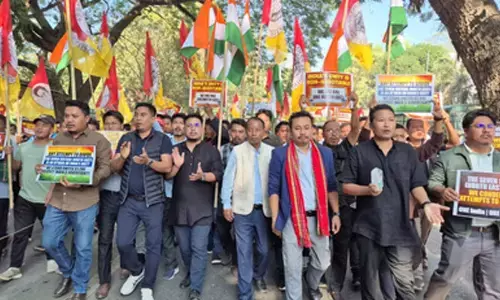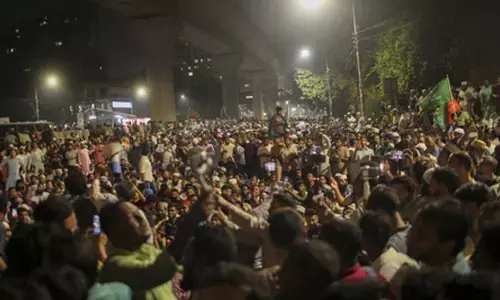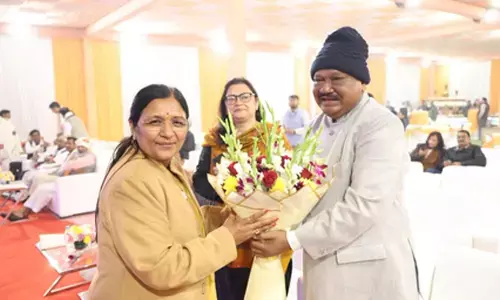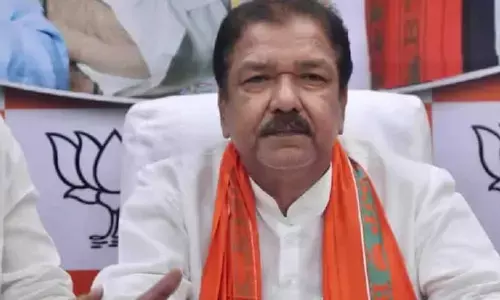Tilak

Lokamanya Bal Gangadhar Tilak, Lokamanya Bal Gangadhar Tilak. The world Lokamanya means honoured by the people. His original name was Balwantrao and, Gangadhar, that of his father. Tilak was one of the front-rank leaders of India who laid the foundation for the freedom of our country.
Look at the portraits of Indian national leaders hanging on the walls of your school room. There is one that puts on a peaked red turban. Beneath it is seen a broad forehead on which shines the gopichandan. He is swarthy of colour, but his eyes are lustrous and face benevolent.
Beneath a sensitive nose droops a walrus moustache hiding a smile on the lips. That is Lokamanya Bal Gangadhar Tilak. The world Lokamanya means honoured by the people. His original name was Balwantrao and, Gangadhar, that of his father. Tilak was one of the front-rank leaders of India who laid the foundation for the freedom of our country.
As one British critic said, Tilak was the father of Indian unrest. He gave us the mantra "Swaraj is my birthright and I will have it." The great service he rendered was, above all, to drive the fear of the British, away from us.
Tilak was born in 1856 in Ratnagiri in Maharashtra. His father Gangadhar was a school master who rose to become a deputy inspector of primary schools.
Gangadhar was a scholar in Marathi, besides being fond of sanskrit and mathematics. He gave his young son a good grounding in both, so much so, young Tilak could reel off sanskrit verses from memory.
Tilak’s mother was a religious and kind-hearted lady who, however, passed away when he was but ten years old. Tilak started his studies in the Pune City High School. As a student, he was unconventional in his ways. He used to solve sums, that too the difficult ones, mentally and write the answers alone sans the method.Tilak got married in his fifteenth year and the following year , his father too passed away. He now studied under the supervision of his uncle.
He succeeded in passing his BA and Law degrees, but he never practiced. When as a lad of 24 Tilak emerged from the college. India was passing through repression under the British rule. He was naturally drawn to the vortex of the Indian ferment.
He, along with two friends, Chiplunkar and Agashar, started a private school on missionary lines for imparting modern education to the largest number of people. Great scholars like VS Apte were associated with this project. They worked as teachers on nominal salary. Thus was started the New English High School of Pune in 1880 which has blossomed in the Deccan Education Society today.
He also started two journals, the ‘Mahratta’ and ‘Kesari’ in 1881 to further the same objectives, namely social and political reformation of the country. Tilak wrote frankly about the problems of the day, often criticising the British rulers.Although Tilak did not practise law, he conducted classes in law for a decade. .
Tilak soon started taking greater part in the social and political activities of the land.
He agitated against the proposal to partition Bengal. For criticising the British rulers, Tilak was looked upon by the British as a thorn in their flesh. He underwent three terms of imprisonments of which the longest was for six years in Mandalay prison in Burma. He was charged with sedition. It was during this imprisonment that he wrote his famous book ‘Gita Rahasya’.
When he was released in 1914, he had a hero’s welcome. After release, he started the Home Rule League in Maharashtra. Swaraj, Swadeshi, Boycott, and National education formed its programme. When the Indian National Congress came into being, he took part in some of its sessions and led its extremist wing.
He became one of the famous trinity of national leaders Lal-Bal-Pal. They were Lala Lajpat Rai, Bal Gangadhar Tilak and Bipin Chandra Pal.
It was Tilak who started the Ganapati festival of Maharashtra for social consolidation and political awakening. He asked the people to participate whole-heartedly in it without distinction of caste. He also started the Shivaji festival to channelise our political aspirations through hero worship.
After a long and strenuous fight for the freedom of India, Tilak passed away on August 1, 1920 and the whole country mourned his death as never before.
In courage, character, power of will and dedication to the service of the people, he had few equals in the annals of our country. He wrote some scholarly books. Of these the ‘Gita Rahasya’ is the most important. In it he explains the Gita as understood by him.
According to him, the Gita says one must go on doing his work in this world even after attaining the highest stage in jnana or bhakti. This work, however, should be done without any attachment. He has written two other notable books. They are ‘Orion’ and the ‘Arctic Home of the Vedas’. In the first, he has tried to show that the Aryan civilisation started in 6000 BC., Rig Veda belongs to 4000 BC. etc. In the second he has tried to prove that the primitive Aryan home was the Arctic region.















